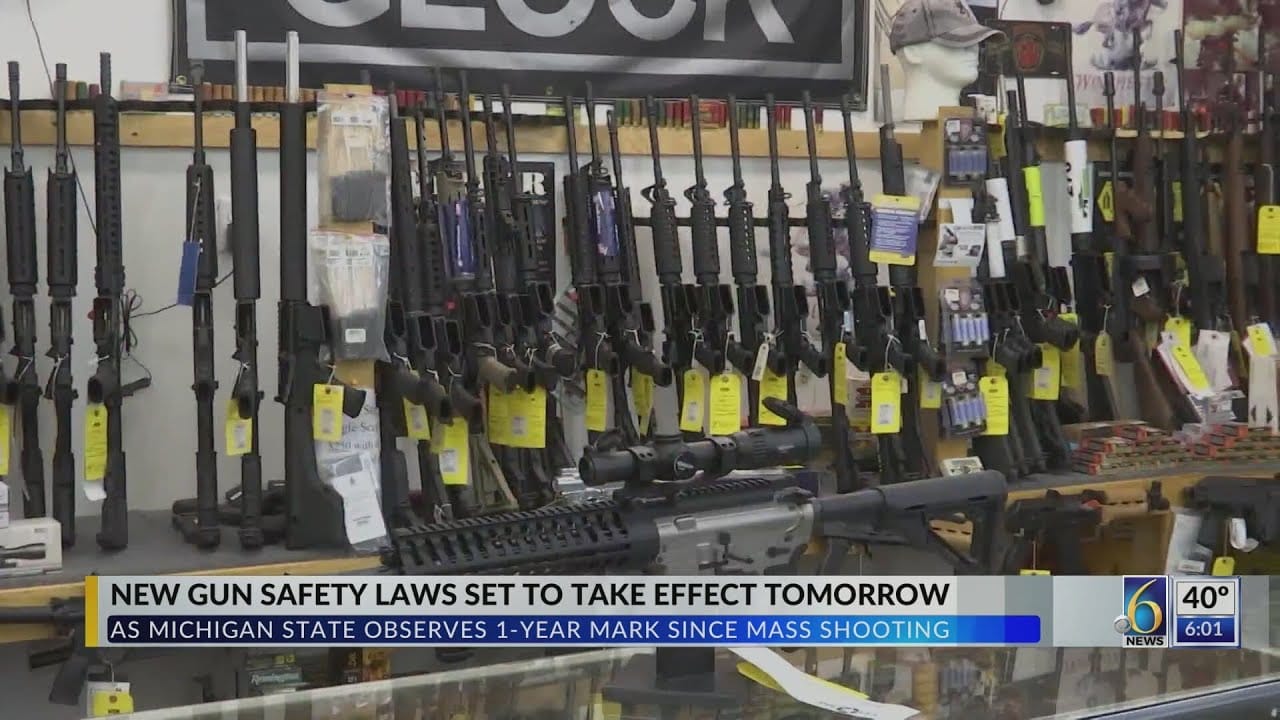As the calendar turns to January 1, 2025, a wave of new gun laws will come into effect across multiple states in the United States. These regulations are designed to address concerns about gun violence and to enhance public safety. While the specifics of the laws differ from state to state, they share a common goal: to create a more regulated environment for firearm ownership and use.
One of the most significant changes involves the implementation of universal background checks. Several states have adopted laws that require background checks for all gun sales, including private transactions. This move aims to close loopholes that previously allowed individuals to purchase firearms without undergoing any screening process. Advocates of this measure argue that it will help prevent firearms from falling into the hands of individuals who may pose a risk to themselves or others.
In addition to background checks, many states are introducing waiting periods for gun purchases. These waiting periods can range from a few days to several weeks, depending on the state. The rationale behind this measure is to provide a cooling-off period for individuals who may be experiencing heightened emotions or distress, potentially reducing impulsive acts of violence. Proponents believe that such delays can contribute to a decrease in suicides and other forms of gun-related incidents.
Another key aspect of the new regulations is the restriction of certain types of firearms and accessories. Some states are moving to ban high-capacity magazines and assault-style weapons, which have been linked to mass shootings and other violent acts. These restrictions are often met with significant debate, as supporters argue they are necessary for public safety, while opponents contend they infringe on Second Amendment rights.
The laws also address the issue of firearm storage. Several states are mandating that gun owners securely store their firearms, particularly if children or unauthorized individuals have access to their homes. This requirement aims to reduce accidental shootings and ensure that firearms do not end up in the wrong hands. Gun owners will need to familiarize themselves with the specific storage requirements in their state to comply with the new laws.
As these laws roll out, it is crucial for residents to stay informed about the changes that will affect them. Many states are launching public awareness campaigns to educate citizens about the new regulations and their responsibilities as gun owners. This information will be disseminated through various channels, including social media, community events, and local law enforcement agencies.
The implementation of these laws will also require cooperation from gun retailers and manufacturers. Many states are instituting new compliance measures for businesses that sell firearms. Retailers will need to ensure they are following the updated regulations regarding background checks and waiting periods. Failure to comply could result in penalties or loss of their license to operate.
The landscape of gun laws in the United States is continually evolving, reflecting the ongoing national conversation about gun control and public safety. While some states are enacting stricter regulations, others are moving in the opposite direction, seeking to expand gun rights. This patchwork of laws can create confusion for gun owners who travel between states, as they may inadvertently violate laws that differ from their home state.
Legal challenges are also expected as these new laws come into effect. Opponents of stricter gun regulations may seek to challenge the legality of these measures in court, arguing that they violate constitutional rights. The outcomes of these legal battles could have significant implications for the future of gun laws in the U.S. and may shape the national dialogue on firearm regulation.
As the January 1, 2025 deadline approaches, it is essential for individuals to review their state’s specific laws and regulations regarding firearms. Understanding these changes will not only help ensure compliance but also contribute to the broader goal of enhancing public safety. Gun owners are encouraged to engage with local advocacy groups, law enforcement, and community organizations to stay informed and participate in discussions about responsible gun ownership.
In conclusion, the new gun laws set to take effect in various states on January 1, 2025, represent a significant shift in the regulation of firearms in the United States. With measures such as universal background checks, waiting periods, and restrictions on certain firearms, these laws aim to address the pressing issue of gun violence and enhance the safety of communities. As residents prepare for these changes, it is crucial to stay informed and understand the responsibilities that come with firearm ownership.

